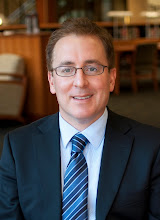Throughout our nation's history, Americans have counted on the First Amendment to protect their right to ask their fellow citizens to change their mind. Abolitionists, suffragists, socialists, pacifists, union members, war protestors, religious believers, civil rights campaigners, anti-tax activists, and countless others have appealed to the principle, enshrined within the First Amendment, that in a democracy such as ours, public debate must be robust and free and that, for it to be so, the Constitution's protection of the freedom of speech must extend to the sidewalk encounter of the proselytizer and his prospective convert. These instances of public persuasion constitute the lifeblood of a self-governing people's liberty, and so even when the beliefs propagated seem to some the “rankest error” that “naturally would offend” any listener, our founding charter deems such encounters “in the long view, essential to enlightened opinion and right conduct on the part of the citizens of a democracy.” Cantwell v. Connecticut, 310 U.S. 296, 309–310 (1940). This case calls on us to apply that principle.As the court indicated, the main problem with the enforcement of this ordinance, which restricts counseling and other forms of speech within the personal space of abortion clinic patients, was that authorities did not apply it even-handedly to counselors who encouraged women to utilize the facilities. The record indicated that only sidewalk counselors who sought to convince women not to obtain an abortion were arrested and prosecuted under the ordinance. I suspect this is typically the case -- i.e., a bubble ordinance is couched in neutral terms, but applied only to those who are near the abortion clinic to protest its activities and to discourage women from obtaining and abortion.
Eugene Volokh has more on the decision here.


No comments:
Post a Comment